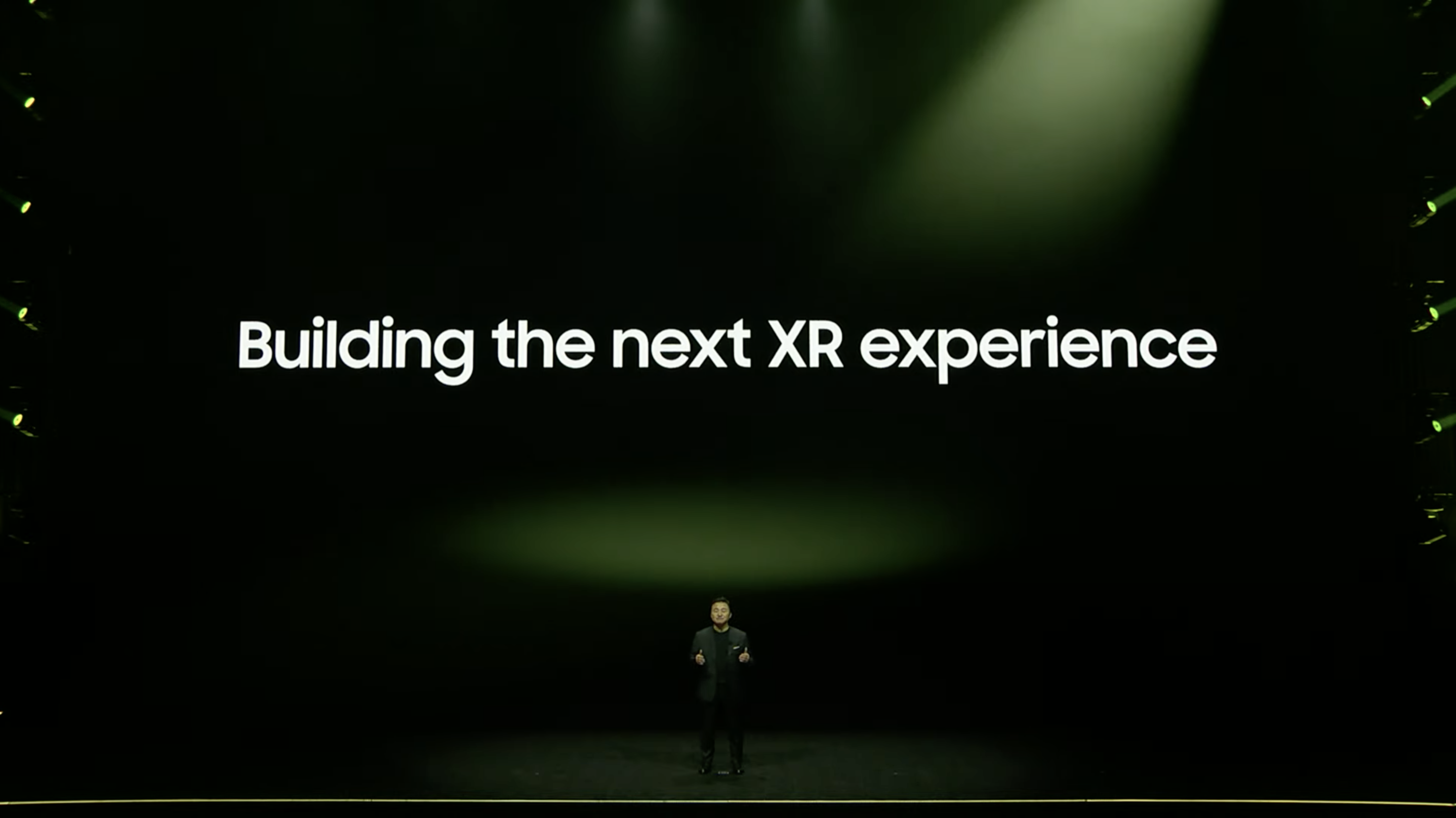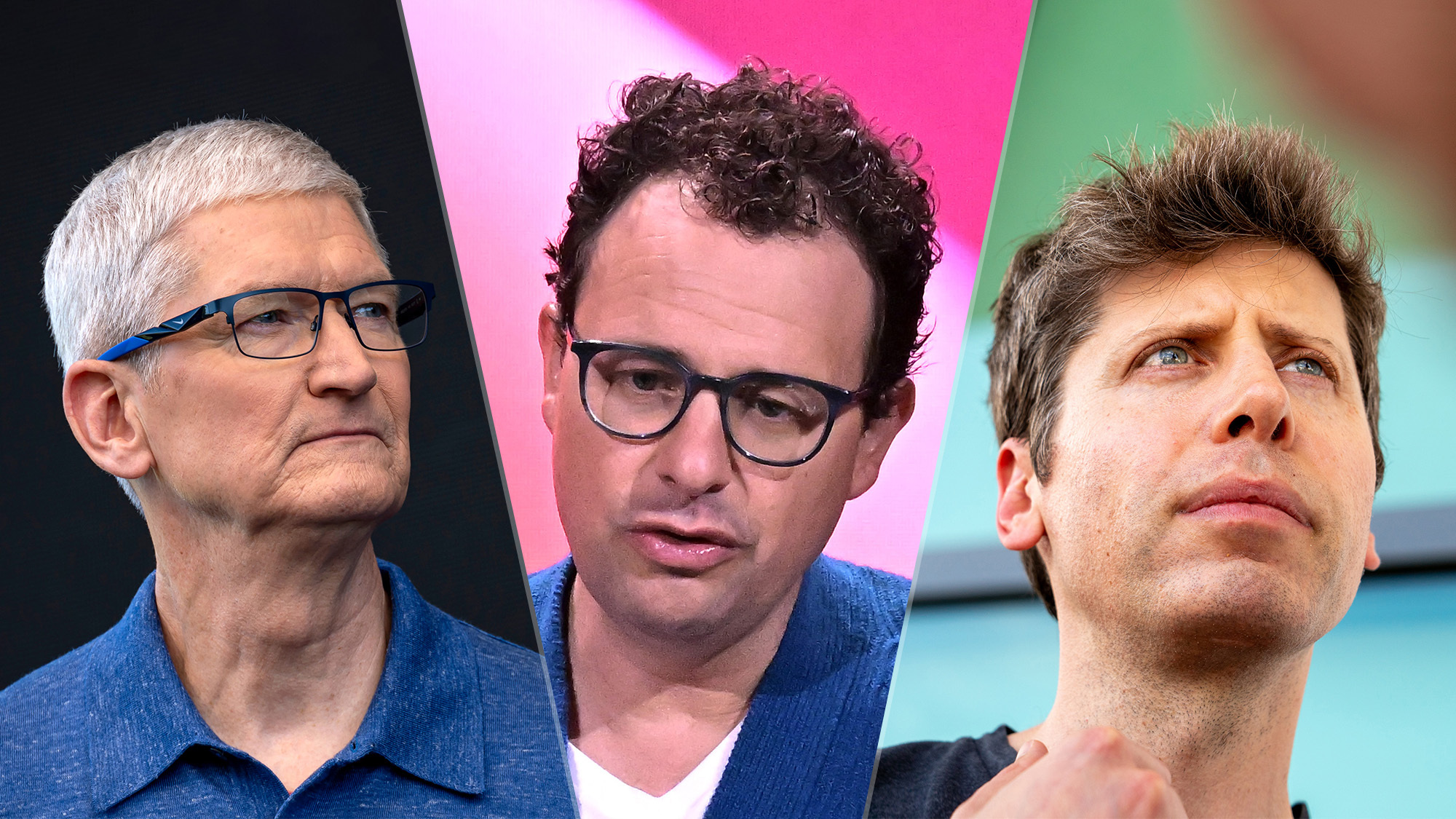Samsung, Google and Qualcomm joining forces on mixed reality to take on Apple
Apple isn't the only tech company building AR/VR/XR hardware

Samsung closed out its February 2023 Unpacked showcase today by inviting executives from Google and Qualcomm on stage to announce that the three companies are partnering to work on building a new mixed-reality platform.
Google SVP Hiroshi Lockheimer spent some of that stage time talking up the company's work building software for AR, VR and XR interfaces, finishing with a tease that whatever the three companies are building will run on a special version of Android.
As for what, exactly will run that version of Android, we can't yet say. That's basically all they told us today, so we can't say for sure what plans (if any) the companies have to build headsets that can handle both AR and VR, just like the much-rumored Apple AR/VR headset that's supposedly in development.
But the fact that Samsung devoted a significant amount of stage time to promoting this partnership suggests the company wants people to pay attention as it moves into this new market to compete with Apple, Meta and more. In a conversation with The Washington Post, Samsung chief TM Roh said that "many different companies...have been making these announcements about different realities...so we have also been making similar preparations."
That's reinforced by his comments in a pre-event interview with Cnet in which Roh says the company has been researching the AR/VR/XR market for some time.
"Now we believe that we have reached a certain threshold," Roh said. He went on to explain that Google, Samsung and Qualcomm will play similar roles in this partnership as they do when building phones together, supplying chips and software to power Samsung's hardware.
"Each player is taking leadership in each category, and then we will be working very closely together across the different categories," Roh told Cnet. However, he made it clear that there would not be hard limits on what each partner might contribute; Google and Qualcomm might have input on the hardware design, for example, while Samsung may have a hand in shaping the software.
Get instant access to breaking news, the hottest reviews, great deals and helpful tips.
Leo Gebbie, Principal Analyst for connected devices at CCS Insight, sees a lot of potential in this three-way partnership.
“Samsung’s announcement around virtual and augmented reality – where it is teaming up with Google and Qualcomm – is a significant development,” said Gebbie via email. “Samsung has spent considerable time and money on virtual reality in the past through its Gear VR, but it ultimately decided that the time was not right for the technology. By announcing that virtual reality is back on its agenda, Samsung has fired the starting pistol among device makers who may be interested in the technology.
”For the last few years, Meta has had the VR market all to itself, but it looks like it will soon get serious competition. “Meta has stormed into an early lead with almost no challenge as it has developed its metaverse vision,” added Gebbie. “However, Samsung is a company with the technology, knowledge and experience to launch a virtual reality device at scale. All eyes will be on its rivals, most notably Apple, which is strongly rumoured to be developing a virtual reality headset behind the scenes.”
Outlook
While details are still scant, it's clear that Samsung is making moves to become a player in the burgeoning AR/VR/XR market. The business was revitalized in 2013 when the Oculus Rift debuted, but since then we haven't seen the market expand the way some hoped.
The Meta Quest 2 is the Rift's successor, and it remains the best VR headset you can buy because it's relatively powerful, affordable and portable. But as the company formerly known as Facebook struggles to sell people on its far more expensive Meta Quest Pro, it looks as though the market is hurting for affordable competition to go toe-to-toe with the Quest 2.
That's why the prospect of Samsung, Google and Qualcomm entering the market is so intriguing: If they can deliver an affordable headset that's powerful enough to deliver solid performance in VR, Meta's long reign in the VR market could finally end.
Of course, that's assuming that Samsung even ships a headset that can do VR (or that it ships anything at all). While details remain scarce, it's clear that these companies have larger ambitions than VR. They want to build a platform that can support augmented reality, virtual reality and mixed-reality, so VR may be nothing more than an option in a sub-menu of whatever wearable these companies end up creating.

Alex Wawro is a lifelong tech and games enthusiast with more than a decade of experience covering both for outlets like Game Developer, Black Hat, and PC World magazine. A lifelong PC builder, he currently serves as a senior editor at Tom's Guide covering all things computing, from laptops and desktops to keyboards and mice.
 Club Benefits
Club Benefits





